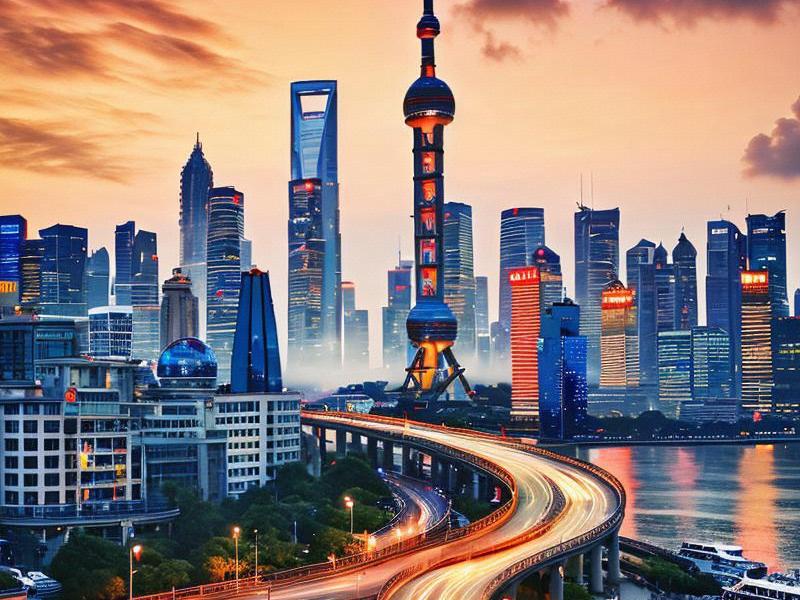
Shanghai, often referred to as the "Pearl of the Orient," is a city that seamlessly blends the old with the new. As one of the most populous and cosmopolitan cities in China, Shanghai offers a unique lifestyle that is a harmonious mix of traditional Chinese culture and international influences. This article explores the multifaceted aspects of Shanghai's lifestyle and culture, highlighting its historical significance, modern urban living, and the vibrant cultural scene that makes it a global icon.
Historical Significance and Cultural Heritage
Shanghai's history dates back over 7,000 years, but it was during the 19th century that the city began to emerge as a major economic and cultural hub. The Treaty of Nanking in 1842 opened Shanghai to foreign trade, leading to the establishment of the International Settlement and the French Concession. This period of colonial influence left a lasting imprint on the city's architecture, cuisine, and culture.
The Bund, a waterfront area along the Huangpu River, is a testament to Shanghai's colonial past. Here, visitors can admire the juxtaposition of historical buildings, such as the Customs House and the Peace Hotel, against the backdorpof the futuristic skyline of Pudong. These structures, built in various architectural styles ranging from Gothic to Art Deco, reflect the city's rich history and its role as a gateway to China.
Modern Urban Living
Shanghai is a bustling metropolis that offers a high quality of life for its residents. The city is known for its efficient public transportation system, which includes the world-famous Maglev train connecting Pudong International Airport to the city center in just seven minutes. The extensive metro network and well-maintained roads make commuting convenient and stress-free.
上海龙凤419贵族 The city's skyline is dominated by iconic skyscrapers such as the Shanghai Tower, the tallest building in China and the second-tallest in the world. These modern structures stand alongside historic buildings, creating a unique urban landscape. The Pudong area, in particular, has transformed from farmland to a global financial hub, with landmarks like the Oriental Pearl Tower and the Jin Mao Tower.
Shanghai's residential areas range from luxurious high-rise apartments to traditional shikumen (stone gate) houses. The shikumen neighborhoods, with their intricate stone carvings and narrow alleys, offer a glimpse into the city's past while providing a cozy living environment for many residents.
Cultural Scene and Festivals
Shanghai's cultural scene is vibrant and diverse, reflecting the city's cosmopolitan nature. The city is home to numerous museums, art galleries, theaters, and music venues. The Shanghai Museum, housed in a former bank building, is renowned for its extensive collection of Chinese art, including ancient ceramics, calligraphy, and paintings.
The city also boasts world-class performing arts venues such as the Shanghai Grand Theatre and the Mercedes-Benz Arena. These venues host a wide range of performances, from traditional Chinese opera and ballet to international concerts and theater productions.
上海贵族宝贝sh1314 Shanghai's culinary scene is another highlight of its culture. The city is a melting pot of flavors, offering everything from traditional Shanghainese dishes like xiaolongbao (soup dumplings) and shengjianbao (pan-fried buns) to international cuisines. The French Concession area is particularly famous for its cafes, bakeries, and fine dining restaurants, where visitors can enjoy a cup of coffee or a gourmet meal in a charming setting.
Festivals play an important role in Shanghai's cultural calendar. The Chinese New Year, or Spring Festival, is the most significant holiday in China and is celebrated with great enthusiasm in Shanghai. The city comes alive with fireworks, dragon dances, and family reunions. Other notable festivals include the Mid-Autumn Festival, where residents gather to admire the full moon and eat mooncakes, and the Shanghai International Film Festival, one of the oldest and most prestigious film festivals in Asia.
Education and Innovation
Shanghai is a global center for education and innovation. The city is home to several world-renowned universities, including Fudan University and Tongji University, which attract students from around the world. These institutions are known for their academic excellence and research contributions in various fields, including science, technology, engineering, and medicine.
Shanghai is also at the forefront of China's technological advancements. The city has developed rapidly as a hub for high-tech industries, with areas like Zhangjiang High-Tech Park and漕河泾开发区 (Chuancheng Development Zone) serving as incubators for startups and innovation. The city's government has implemented policies to promote entrepreneurship and attract talent, making Shanghai a key player in China's economic transformation.
上海水磨外卖工作室 Environmental Initiatives
In recent years, Shanghai has made significant efforts to address environmental challenges and promote sustainable development. The city has invested in green infrastructure, such as urban forests, parks, and green roofs, to improve air quality and enhance the quality of life for its residents. Shanghai is also a leader in renewable energy, with solar and wind power projects contributing to the city's energy mix.
The city has implemented strict regulations to reduce pollution and improve waste management. Recycling programs and initiatives to encourage the use of public transportation are part of Shanghai's commitment to sustainability. The Bund and other waterfront areas have been revitalized with green spaces and eco-friendly developments, providing residents and visitors with opportunities to enjoy nature in the heart of the city.
Conclusion
Shanghai's lifestyle and culture are a testament to the city's ability to embrace change while preserving its rich heritage. From its historical landmarks to its modern skyscrapers, from its vibrant cultural scene to its commitment to sustainability, Shanghai offers a unique and dynamic experience for residents and visitors alike. As the city continues to evolve, it remains a symbol of China's progress and a beacon of cultural exchange on the global stage.
